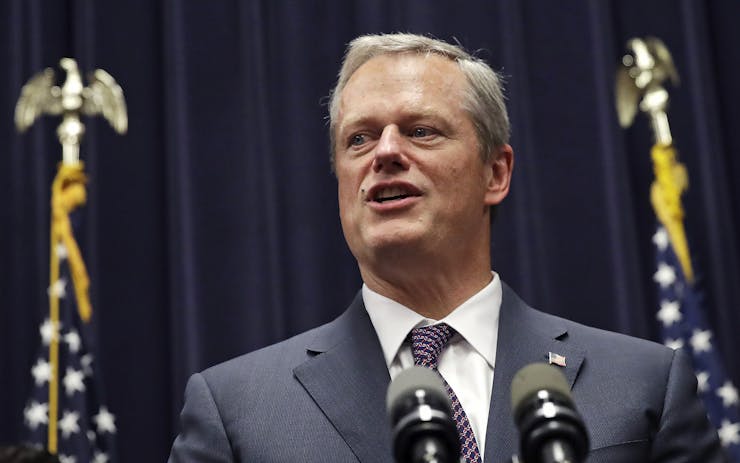Massachusetts Gov. Charlie Baker signed a sweeping cannabis bill into law on Friday, marking a milestone in a regulatory battle that began when state voters approved an adult-use legalization measure in November.
“I worry terribly about what the consequences over time will be.”
The new law, the result of a legislative compromise struck last week between the House and Senate, rewrites much of the voter-approved initiative—raising allowable tax rates, amending rules around local cannabis bans, and adjusting details of the agency that will oversee the state’s cannabis program.
Even as he signed the bill, Baker, a Republican, expressed doubts about legalization. He said he remains hopeful that the lawmakers’ changes would address some of his biggest concerns.
“I worry terribly about what the consequences over time will be, and having spent a lot of time talking to folks in Colorado and in Washington … there are a lot of pitfalls we have to avoid,” he said.
“But, look,” he continued, “the people voted this and I think it’s important that we put the program in place and deliver a workable, safe, productive recreational marijuana market for them in Massachusetts.”
Among the biggest changes under the law is the boost in allowable taxes. The voter-approved initiative set maximum rates at 12% in combined state and local taxes. The new law raises that to 20%. Medical cannabis will remain untaxed.
As in many other legal states, local jurisdictions will have the opportunity to ban the cannabis industry. But the process under the new law is unusual: In communities where a majority of residents voted against November’s legalization measure, elected officials can enact a ban themselves. In areas where residents approved the ballot question, a voter referendum would be required to ban or restrict cannabis businesses.
Some legal experts have said that the compromise, which removes the ability of some voters to oppose a ban, could leave the law open to a constitutional challenge.
Packaging and labeling rules under the new law will require cannabis products to be sold in child-resistant packaging, and THC levels are required to be included on product labels. “We want it to be a responsible industry that sells safe products to consenting adults and doesn’t market products to children and teenagers,” said Democratic Sen. Jason Lewis, who led a delegation of legislators on a fact-finding trip to Colorado last year and later opposed the ballot question.
“We take elected officials at their word that there will be no more delays in implementation of the legal sales system.”
Shortly after Baker signed the bill, state Treasurer Deb Goldberg, a Democrat, announced her five appointees to the Cannabis Advisory Board. The board will offer advice and recommendations to the yet-to-be-formed Cannabis Control Commission, which will oversee both adult-use and medical programs.
Some of Goldberg’s appointees have experience in the medical cannabis industry. They include:
- Norton Arbeláez, who founded a medical cannabis center in Denver and advised Colorado state regulators.
- Alan Balsam, the former director of public health in Brookline, MA, and an adjuct associate professor at Tufts Medical School and Boston University School of Public Health.
- Michael Dundas, the president and CEO of Massachusetts dispensary Sage Naturals, who helped form the Commonwealth Dispensary Association.
- Jaime Lewis, the founder of cannabis product manufacturer Mountain Medicine and a founding member of the Cannabis Business Alliance. Formerly the chief operations officer for a Colorado dispensary, she now works at Mayflower Medicinals.
- Shanel Lindsay, an attorney and legalization advocate. A former law clerk for the Massachusetts superior court, she since founded biotech and medical cannabis company Ardent, where she serves as president.
Baker and Democratic Attorney General Maura Healey must also by next week appoint five members each to the board.
As for the Cannabis Control Commission, a five-member board that must be formed by Sept. 1, the state budget for the fiscal year that started July 1 includes only $2 million to fund the group. Goldberg, responsible for naming the board’s chairman, has said the commission would need up to $10 million in the first year.
“If they need additional resources, they will get additional resources,” Baker said Friday.
Jim Borghesani, spokesman for the ballot question group, found the governor’s pledge reassuring.
“Right now a $2 million appropriation doesn’t even cover the software that’s necessary to get this system up and running,” he said.
In a statement, Borghesani added: “We take elected officials at their word that there will be no more delays in implementation of the legal sales system.”
The Associated Press contributed to this report.





